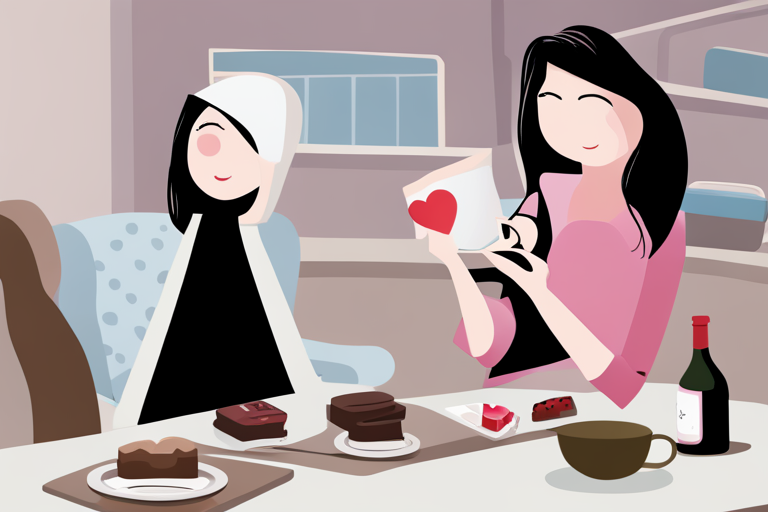Table of Contents
Introduction
Embarking on the journey of finding love after losing a spouse can be a daunting task. The world of dating can seem unfamiliar and even intimidating. However, it’s important to remember that it’s possible to honor your past while building new connections. This article aims to guide widows through the process of navigating romance after loss.
It’s crucial to acknowledge that everyone’s journey is unique. The challenges that widows face in the dating world can vary greatly. Some may struggle with feelings of guilt or betrayal, while others may face judgment or unsolicited advice from friends and family. Regardless of the obstacles, it’s important to approach this new chapter with patience, self-love, and optimism.
Remember, there’s no set timeline for when you should start dating again. It’s a deeply personal decision that should be made when you feel ready. This guide is here to provide support and advice for when that time comes.
Understanding Your Grief and Healing Process
Before you can open your heart to a new love, it’s important to allow yourself time to grieve and heal. The loss of a spouse is a profound event that can trigger a range of emotions, from sadness and anger to guilt and fear. It’s crucial to navigate these feelings at your own pace and in your own way.
Understanding the stages of grief can be helpful in this process. These stages, which include denial, anger, bargaining, depression, and acceptance, are not linear and can occur in any order. It’s normal to move back and forth between these stages, and some may linger longer than others. Be patient with yourself and remember that healing is not a race.
If you’re finding it difficult to cope with your grief, consider seeking professional help. Therapists and counselors can provide valuable tools and strategies for managing grief. Joining a support group can also be beneficial, as it allows you to connect with others who are going through a similar experience.
Embracing Self-Love and Self-Care
Self-love and self-care are essential components of the healing process. They can help you regain your sense of self and build resilience. Engaging in activities that bring you joy, practicing mindfulness, and prioritizing self-reflection are all ways to nurture self-love and self-care.
Engaging in hobbies can provide a sense of accomplishment and purpose. Whether it’s gardening, painting, or hiking, find something that you love and make time for it. Practicing mindfulness, such as meditation or yoga, can also help you stay present and reduce stress.
Self-reflection is another important aspect of self-care. It involves taking time to understand your feelings and needs. Journaling can be a helpful tool for self-reflection, as it allows you to express your thoughts and emotions freely.
Redefining Your Identity and Priorities
After the loss of a spouse, it’s common to feel a sense of identity loss. You may have defined yourself as a wife for many years, and now you’re faced with the task of redefining your identity. This process can be challenging, but it’s also an opportunity for growth and self-discovery.
Reflecting on your values, goals, and priorities can help you redefine your identity. Consider what’s important to you now and what you want for your future. This reflection can guide you in attracting partners who align with your values and goals.
Embracing new roles and responsibilities can also be part of redefining your identity. Whether it’s becoming more independent or taking on new hobbies, these changes can help you discover new aspects of yourself. Remember to stay true to yourself and honor your past while embracing these changes.
Navigating the Dating World
Entering the dating world as a widow can feel overwhelming. However, with the right approach and mindset, it can also be an exciting journey. Whether you choose to explore online dating platforms or offline opportunities, it’s important to take things at your own pace.
Setting boundaries is crucial when dating. These can include emotional boundaries, such as not discussing your late spouse on the first date, or physical boundaries, such as deciding when you’re comfortable with physical intimacy. Remember, it’s okay to say no and to take things slow.
It’s normal to have fears and concerns when entering the dating scene. You may worry about being compared to your late spouse or about your potential partner’s reaction to your widow status. It’s important to communicate these concerns openly and honestly with your potential partner. Remember, anyone worth dating will understand and respect your feelings.
Honoring Your Past While Building New Connections
Honoring the memory of your late spouse while building new connections can be a delicate balance. It’s important to remember that moving forward does not mean forgetting the past. You can honor your late spouse’s memory while still opening your heart to new love.
There are many ways to incorporate your late spouse’s memory into your new life. This could be through keeping certain traditions alive, such as celebrating their birthday, or through keeping their memory alive in your home. However, it’s important to ensure that these memories don’t overshadow your new connections.
Open communication with new partners about your past is key. It’s important for them to understand your journey and the significance of your late spouse in your life. This understanding can foster empathy and deepen your connection.
Dealing with Judgment and Unsolicited Advice
Unfortunately, widows often face judgment and unsolicited advice when pursuing new relationships. Friends and family may have opinions about when you should start dating again or who you should date. It’s important to remember that this is your journey and your decision.
Setting boundaries with friends and family can help manage these situations. This could involve politely declining advice or expressing your desire to make your own decisions. Remember, it’s okay to prioritize your own feelings and needs.
Ultimately, trust your own judgment. You know what’s best for you and what feels right. Don’t let others’ opinions sway your decisions.
Building Healthy and Meaningful Relationships
Building healthy and meaningful relationships after loss is crucial. These relationships can provide support, companionship, and joy. Effective communication, trust-building, and fostering emotional intimacy are key components of healthy relationships.
Effective communication involves expressing your feelings, needs, and concerns openly and honestly. It also involves active listening and understanding your partner’s perspective. Trust-building involves being reliable, keeping your promises, and showing respect for your partner’s boundaries.
Fostering emotional intimacy involves sharing your innermost thoughts and feelings with your partner. It also involves being supportive and empathetic. Remember, building emotional intimacy takes time and patience.
Embracing the Future with Hope and Optimism
Embracing the future with hope and optimism is key to finding love after loss. It’s normal to have fears and doubts about the future, but it’s important to remember that it’s possible to find love and happiness again.
There are many inspiring stories of widows who have found love and happiness after loss. These stories serve as a reminder that love is possible at any stage of life and that it’s never too late to start a new chapter.
Keep an open heart and mind. Be patient with yourself and with the process. Remember, you deserve love and happiness, and it’s okay to seek them out.
Conclusion
Navigating romance as a widow can be a challenging journey, but it’s also an opportunity for growth, self-discovery, and new love. It’s possible to honor your past while building new connections. Remember, there’s no set timeline for when you should start dating again. The decision is deeply personal and should be made when you feel ready.
Self-love, patience, and optimism are key in this journey. Embrace self-care practices, reflect on your values and goals, and approach dating at your own pace. Don’t be afraid to set boundaries and to communicate your feelings openly and honestly.
Finally, remember that you’re not alone. There are many resources available, from support groups to therapists, to help you navigate this journey. Trust your own judgment, embrace the future with hope and optimism, and know that love is possible after loss.










